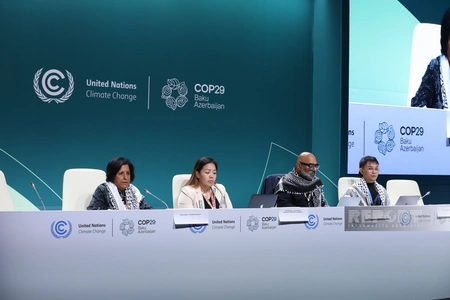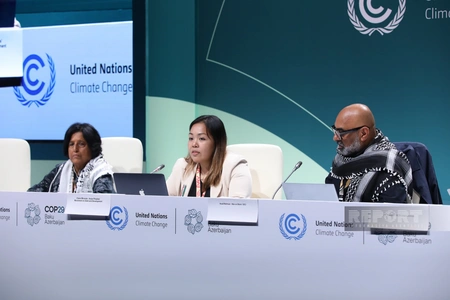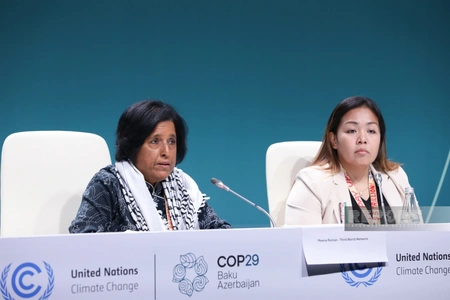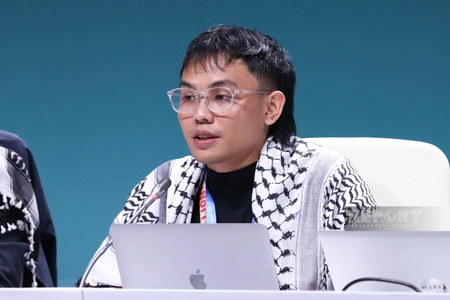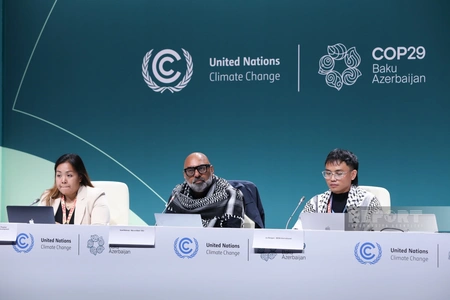Claire Miranda: Climate finance must reach $5 trillion annually
- 11 November, 2024
- 07:30
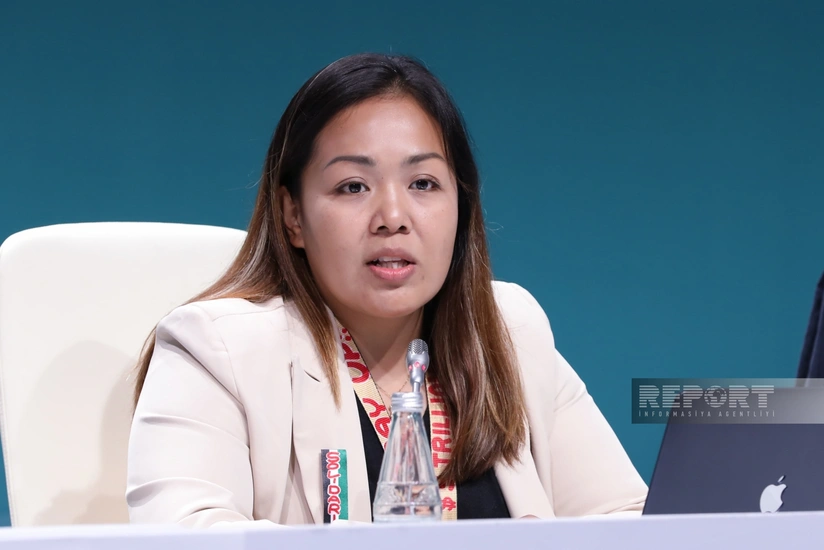
Climate finance took center stage at a conference held within COP29 in Baku as experts discussed the critical role it plays in combating climate change. The conference, titled "Global Campaign for Climate Justice," highlighted the challenges faced by developing countries and the reluctance of developed nations to invest sufficient funds in addressing climate issues.
Mina Raman, a representative from the Third World Network, criticized developed countries for diverting attention from the issue of state climate financing. "At climate summits, it is impossible not to discuss the problem of financing and the responsibility that developed countries must take on," she emphasized.
Claire Miranda, a representative from the Asian People's Movement on Debt and Development (APMDD), stressed that climate financing must be increased to $5 trillion per year, as the current level is insufficient. "These 5 trillion should cover not only mitigation and adaptation but also include compensation for losses and damages, as well as consider the transition period," she explained. Miranda also noted that losses and damages cannot be pushed aside or shifted onto the shoulders of multilateral development banks (MDBs).
The speakers also touched upon issues related to Article 6 of the Paris Agreement on carbon credits. Jax Bongon, a representative from IBON International's Climate Justice Program, argued that carbon financing or financing obtained from markets does not constitute climate financing. He explained that developed countries use carbon markets to avoid climate contributions, which negatively affects countries in the global south. "Climate financing should not be carried out through mechanisms that harm the very communities it is intended to support," he concluded.
Photo: Vugar Khanlarov
